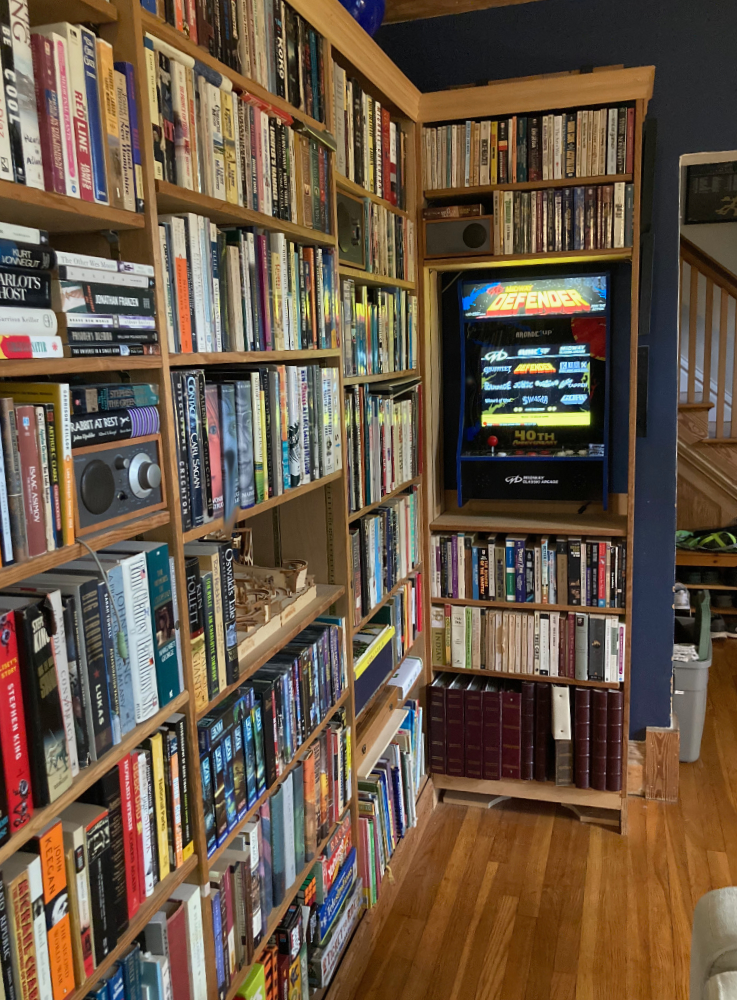
a story and conversation repository (est. 2000)






a story and conversation repository (est. 2000)
|
|
|||||

|

|

|

|

|
||
|
|
||||||
|
||||||||||||||||||||||||||||||||||||||||||||||||||||

The last few years I have spent the month of July tent-camping in Michigan. Parts of the family will join me for much of this but I usually spend a week or two alone. Every morning of this month begins with a 3-4 hour reading and writing session on the beach. As for what I’m reading, each year I choose a different topic to research and I will have a few books on that subject and will spend my mornings studying them. This year I chose two topics. First something from a previous year I needed a refresher on—the flow phenomenon (the mental state where you lose yourself while doing something). The second was something I know embarrassingly little about—money (not knowing much has never before been a problem because I've never had much/enough to worry about). Below are two of the more mind-bending moments from each during this year's beach study.
First from Mihaly Csikszentmihalyi's book Flow (slightly abbreviated) which describes the difference between pleasure and enjoyment. The import and nuance of this understanding might be one of the most powerful things I've ever learned. It is possible I knew this, or at least had a sense for it, but I would have never been able to verbalize it, which consequently means I would not have been able to intentionally structure it into my days and life. 
When considering the kind of experience that makes life better, most people first think that happiness consists in experiencing pleasure: good food, good sex, all the comforts that money can buy. We imagine the satisfaction of traveling to exotic places or being surrounded by interesting company and expensive gadgets. If we cannot afford those goals that slick commercials and colorful ads keep reminding us to pursue, then we are happy to settle for a quiet evening in front of the television set with a glass of liquor close by.
Pleasure is an important component of the quality of life, but by itself it does not bring happiness. Sleep, rest, food, and sex provide restorative homeostatic experiences that return consciousness to order … but they do not produce psychological growth. They do not add complexity to the self. When people ponder further about what makes their lives rewarding, they tend to move beyond pleasant memories and begin to remember other events, other experiences that overlap with pleasurable ones but fall into a category that deserves a separate name: enjoyment. Enjoyable events occur when a person has not only met some prior expectation or satisfied a need or a desire but also gone beyond what he or she has been programmed to do and achieved something unexpected, perhaps something even unimagined before. Enjoyment is characterized by this forward movement: by a sense of novelty, of accomplishment. Playing a close game of tennis that stretches one’s ability is enjoyable, as is reading a book that reveals things in a new light, as is having a conversation that leads us to express ideas we didn’t know we had. Closing a contested business deal, or any piece of work well done, is enjoyable. None of these experiences may be particularly pleasurable at the time they are taking place, but afterward we think back on them and say, “That really was fun” and wish they would happen again. After an enjoyable event we know that we have changed, that our self has grown: in some respect, we have become more complex as a result of it. Second, from Morgan Housel’s book The Psychology of Money discussing our intellectual blind spots. I love the below passage for both the lesson it conveys but also the succinct and relatable way it coveys it. The point itself is not about money but human behavior (which in the end is what about 93% of this book ends up being about). What a clear and profound explanation to something I'm sure we've all experienced in our dealings with other people. Further, if we are honest with ourselves, I imagine it exposes the rationale behind some of our own actions and positions. If there is a flaw in this book it is that Housel uses the fruit "dates" in the below excerpt as an example of something that tastes good--but see, there goes my blind spot filling in holes as I don't think I know what a date taste like. All I know is I can't fathom using that as an example of something that taste good while oreo cookies exist. 
My Daughter is about a year old as I write this. She’s curious about everything and learns so fast.
But sometimes I think about all the stuff she can’t comprehend. She has no idea why her dad goes to work every morning. The concept of bills, budgets, careers, promotions, and saving for retirement are completely foreign to her. Imagine trying to explain the Federal Reserve, credit derivatives, of NAFTA to her. Impossible. But her world isn’t dark. She does not wander around in confusion. Ever at a year old, she’s written her own internal narrative of how everything works. Blankets keep you warm, mom snuggles keep you safe, and dates taste good. Everything she comes across fits into one of the a few dozen mental models she’s learned. When I go to work she doesn’t stop in confusion, wondering what salary and bills are. She has a crystal clear explanation of the situation: Dad isn’t playing with me, and I wanted him to play with me, so I’m sad. Even though she knows little, she doesn’t realize it, because she tells herself a coherent story about what’s going on based on the little she does know. All of us, no matter our age, do the same thing. Just like my daughter, I don’t know what I don’t know. So I am just as susceptible to explaining the world through the limited set of mental models I have at my disposal. Like her, I look for the most understandable causes in everything I come across. And like her, I’m wrong about a lot of them, because I know a lot less about how the world works than I think I do. Regarding the picture above, let me explain it by mimicking an exchange from my third favorite movie American Beauty. MARTY Who’s video game is that in the bookshelf? TROY Mine. A 1980 William’s Defender Arcade game. The game I’ve always wanted and now I have it. I rule! Here is the actual movie moment. And I don't mean to imply Marty was that angsty about it. But I wouldn't catergorize her reaction as "Oh, yay! An 80's video game hanging in our living room" either.
OCT 2023
|
||||||||||||||||||||||||||||||||||||||||||||||||||||
|
||||||||||||||||||||||||||||||||||||||||||||||||||||
|
||||||||||||||||||||||||||||||||||||||||||||||||||||
|
|
||||||||||||||||||||||||||||||||||||||||||||||||||||
|
|
|
||||
| Home | Troy Notes | Monorail | TroyScripts | Photo Gallery |